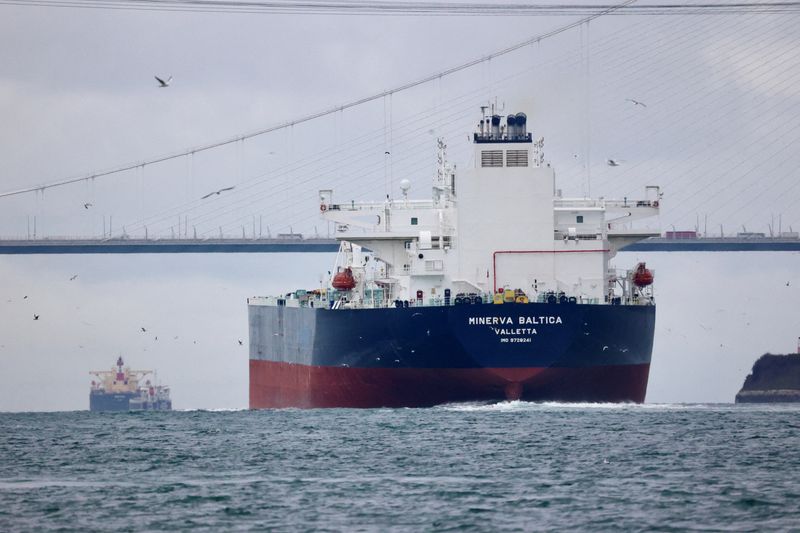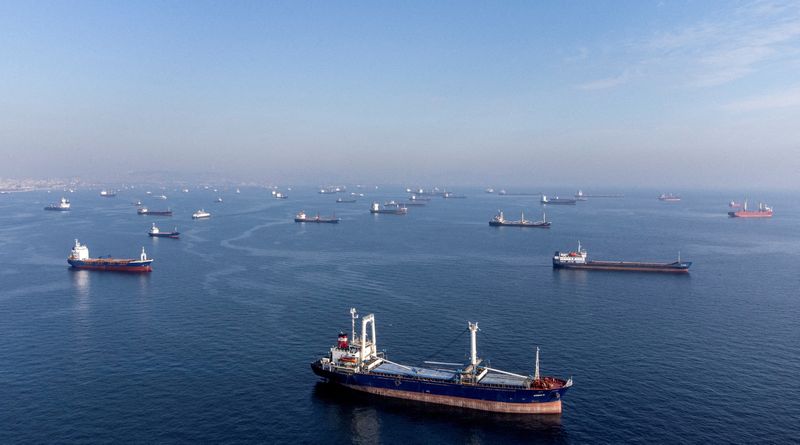MOSCOW (Reuters) -Russia is concerned about a build-up of oil tankers in the Bosphorus Strait and is discussing the issue with insurance and transport companies, RIA cited Russian deputy foreign minister Alexander Grushko as saying on Wednesday.
At least 20 oil tankers queuing off Turkey face more delays to cross from Russia's Black Sea ports to the Mediterranean as operators race to adhere to new Turkish insurance rules added ahead of Europe's ship insurance ban and a G7 price cap on Russian oil, industry sources said on Tuesday.
Turkish maritime authorities issued a notice seen by Reuters last month asking for additional guarantees from insurers that transit through the Bosphorus would be covered starting from the beginning of this month.
"We are aware of this situation. Of course, it causes us concern from the point of view of the interests of our operators. This problem is being discussed with transport and insurance companies. After all, insurance companies insure, not the state," Grushko is quoted as saying.
"If the problem is not solved, of course, there will be involvement on the political level."
The European Union banned all seaborne Russian crude imports from Dec. 5, with a fuel import ban to follow in February.
It also banned companies and individuals in the bloc from providing financing, brokerage, shipping and insurance services to ship Russian oil elsewhere if the crude was bought above a price cap of $60 a barrel that came into effect on Monday.
Disruptions in tanker traffic from Russia's Black Sea ports to the Mediterranean are a result of a new Turkish insurance rule, not the price cap on Russian oil agreed by a coalition of G7 countries and Australia, an official with the group said on Tuesday.

Kazakhstan, a large oil exporter, said on Wednesday that the build-up of the oil tankers at the Bosphorus is normal during the winter season.
"The waiting time in the Bosphorus and Dardanelles is six days for now. For the winter season, this is a normal wait; last year, the wait in the straits in December was about 14 days," Kazakhstan's Energy Ministry said in a statement.
